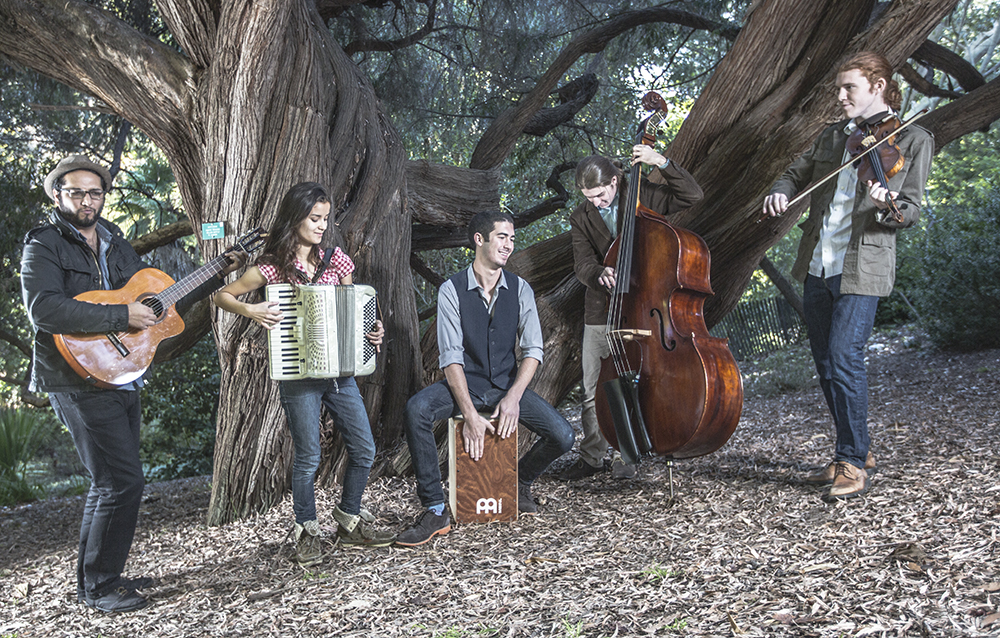Spring Sing Profile: We the Folk

The folk band We the Folk has been experimenting with new sounds to create its Spring Sing song “Won’t You Come Back?” The song mixes both urban and East European Gypsy sounds. (Austin Yu/Daily Bruin)
By Amy Char
May 14, 2014 12:00 a.m.
We the Folk has a simply worded question for its audience, from a heartbroken man and his loyal friends: “Won’t You Come Back?”
We the Folk will perform the song “Won’t You Come Back?” Friday at this year’s Spring Sing. With both urban and East European Gypsy sounds, the song will feature fourth-year ethnomusicology and music education student Elena Loper on lead vocals.
Recently, the eclectic folk band has been experimenting with new sounds and plans to release an EP by the end of the summer.
Frequent collaborators Loper and David Villafaña, a UCLA alumnus who serves as We the Folk’s vocalist and guitarist, wrote the piece together. Villafaña said the band’s Spring Sing performance will feature both Loper’s individual sound and We the Folk’s distinct sound.
“When I sing it, we play it more aggressively, even faster,” Villafaña said. “With (Loper), it’s a little smoother – not too laidback, but a different … smokier vibe to it.”
Villafaña said the line “Won’t you come back?” can be lyrically interpreted in two ways: When he sings the song, it can be interpreted as the character’s plea to his new ex; when the rest of the band sings during a call-and-response portion of the song, it can be interpreted as a plea to the main character.
Villafaña said that while the band has weaved together world folk music with an indie vibe, he thinks the “eclectic” folk genre best describes the band’s sound. He believes the word “eclectic” is undervalued, as it encompasses how the band dabbles with different styles of folk.
Villafaña said one of the true challenges for a performer is connecting with the audience, even one that isn’t visible from the stage.
“Performance style is (part of) what defines us,” Villafaña said. “We like to connect. We’re excited to see what the reaction will be like in Pauley, where … (it’ll be) our moment and the audience’s moment to connect. I hope they’ll accept the invitation.”


